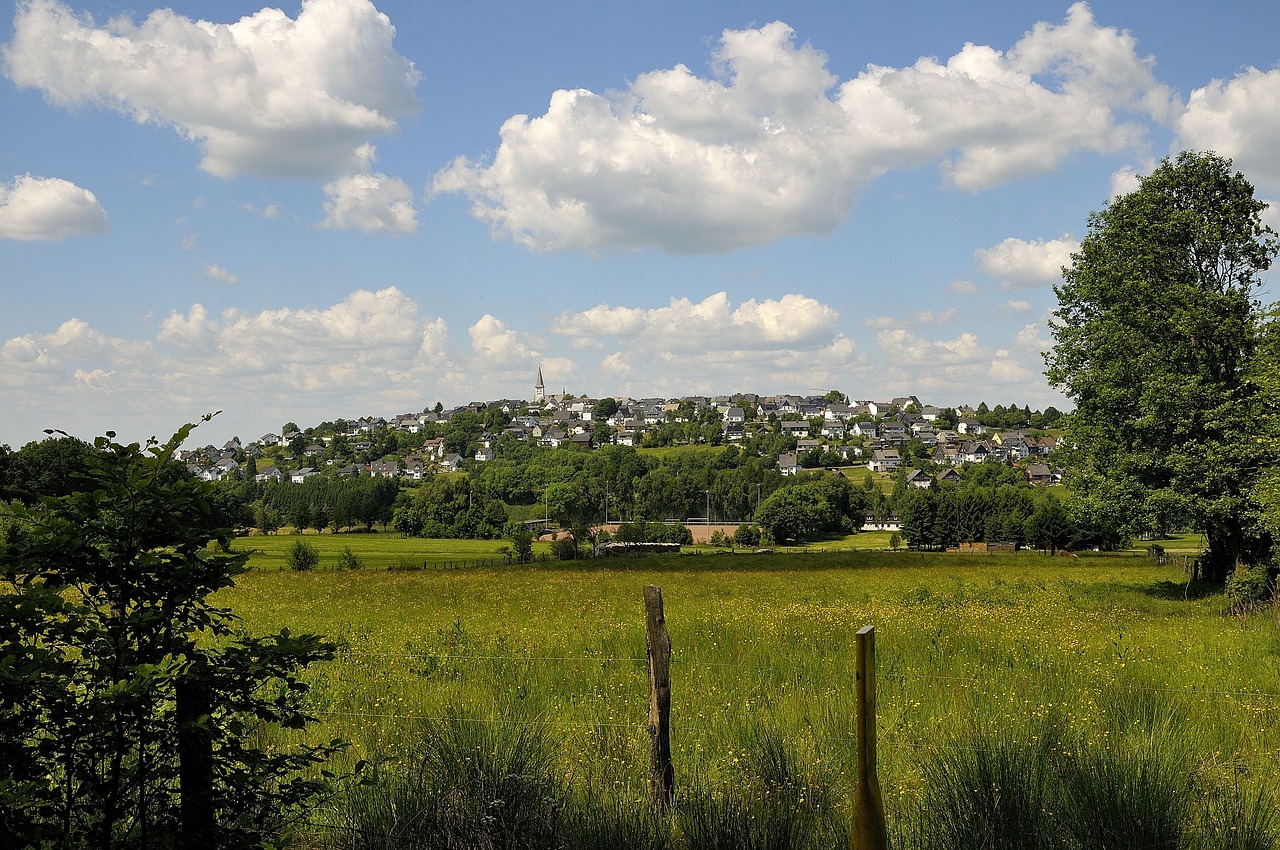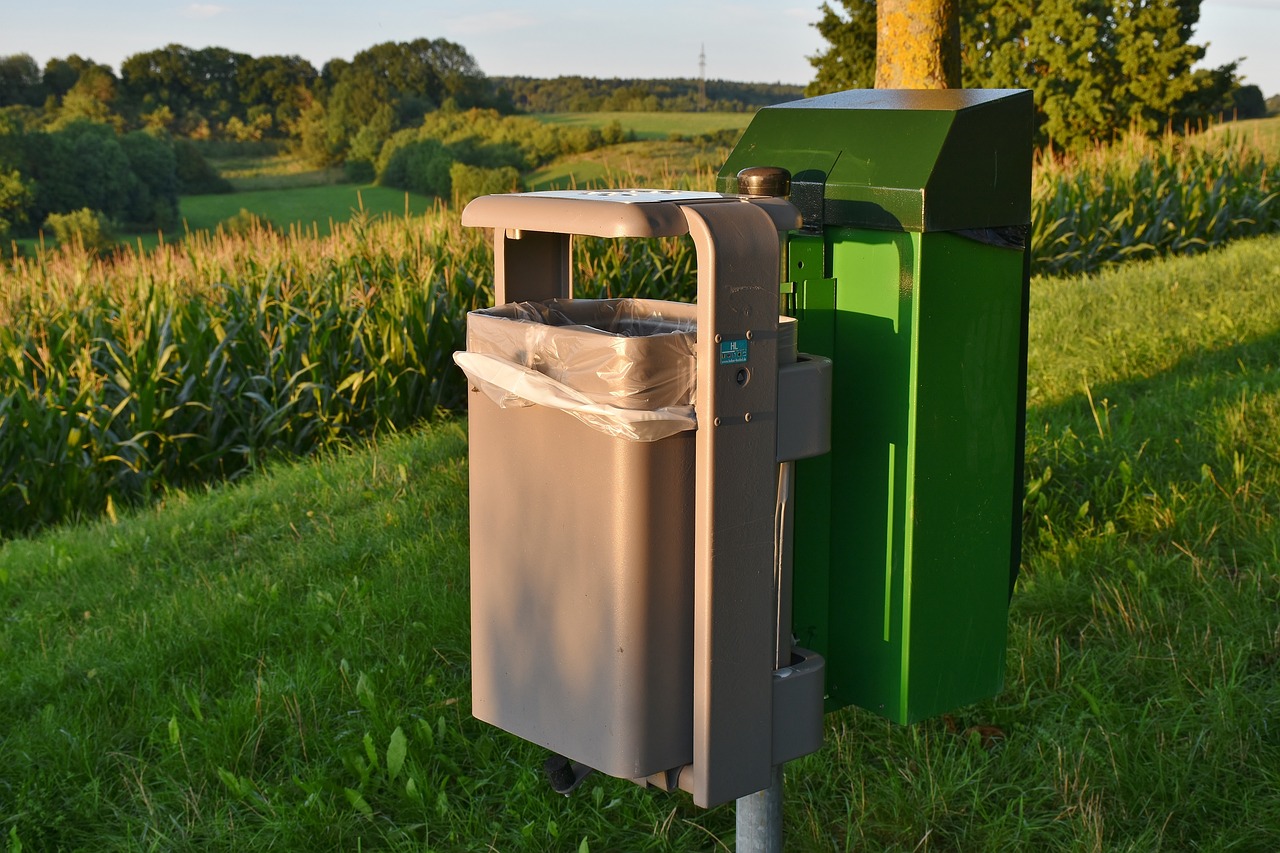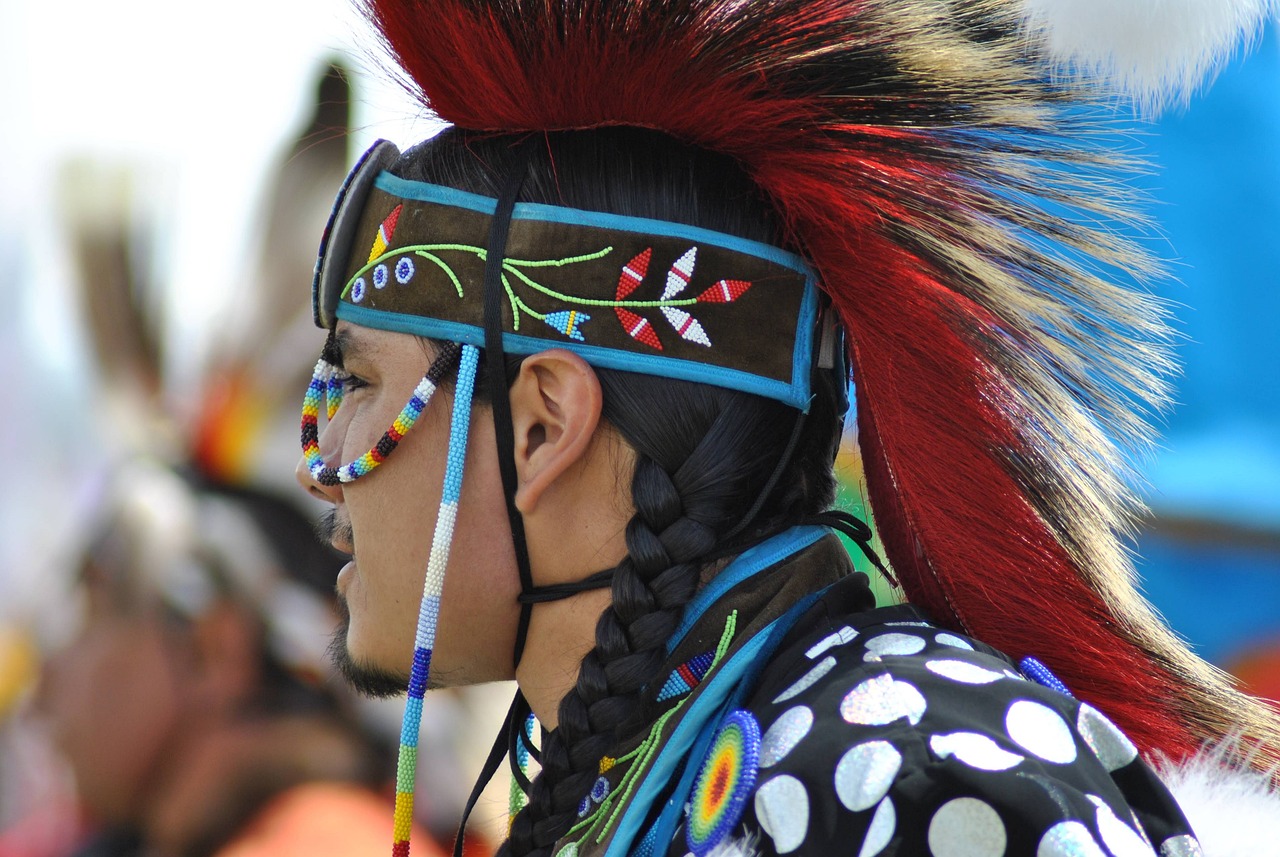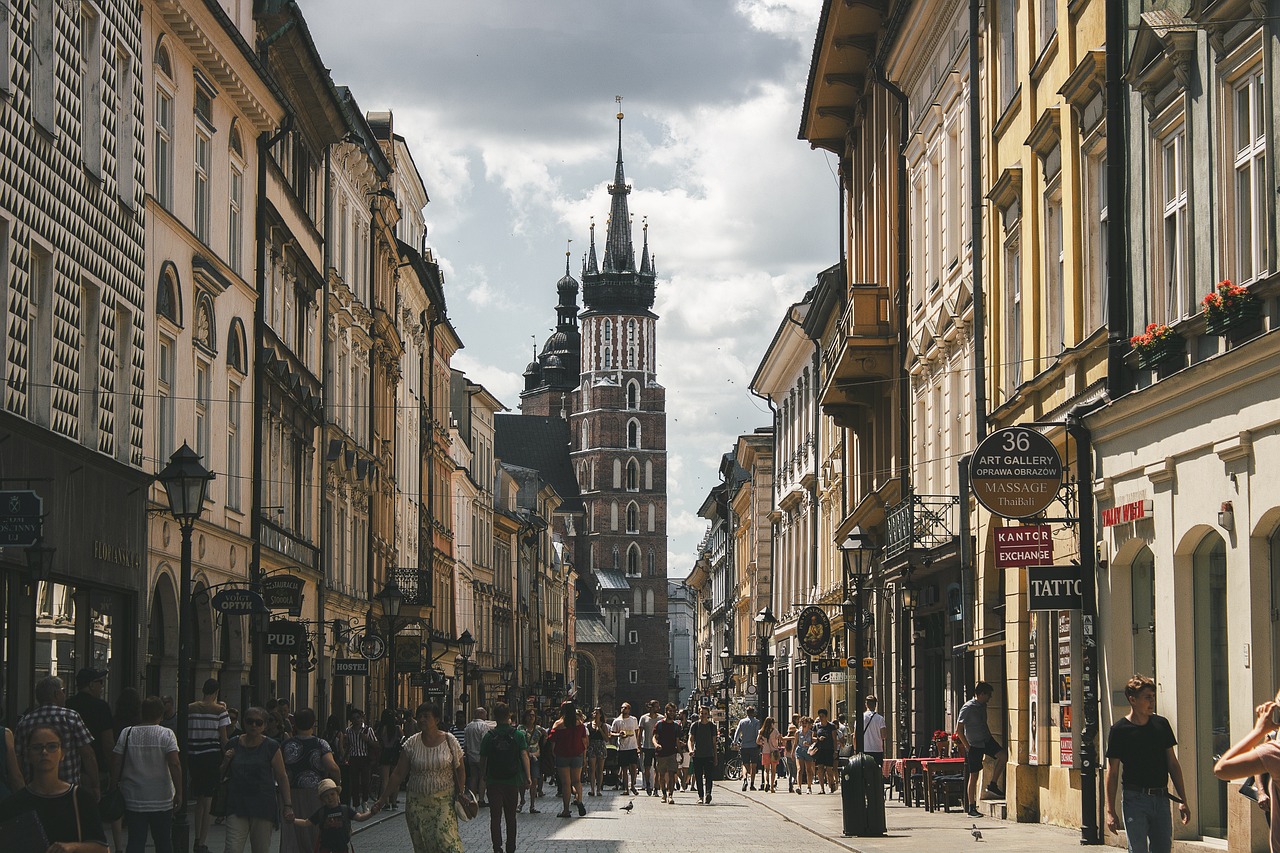Sustainable Tourism Strategies for Visiting Canada’s Victoria
When it comes to exploring the beautiful city of Victoria in Canada, adopting sustainable tourism strategies is not just a choice but a responsibility. Sustainable tourism practices play a crucial role in preserving Victoria's natural beauty and cultural heritage for future generations to enjoy. By implementing eco-friendly initiatives and engaging with local communities, visitors can experience the wonders of Victoria while minimizing their environmental impact.
One of the key aspects of sustainable tourism is the importance of local community engagement. Local communities in Victoria play a vital role in promoting sustainable practices and creating authentic experiences for visitors. By supporting local businesses, cultural events, and traditions, tourists can contribute to the preservation of Victoria's unique identity.
Conservation efforts and eco-friendly practices are at the core of sustainable tourism in Victoria. Initiatives such as wildlife protection programs, habitat restoration projects, and sustainable energy solutions help safeguard the city's environment and wildlife. By participating in these conservation efforts, visitors can actively contribute to the preservation of Victoria's natural resources.
Furthermore, cultural preservation and heritage tourism are essential components of sustainable travel in Victoria. By respecting and celebrating the city's rich cultural heritage, tourists can help sustain traditional practices and support local artisans. Heritage tourism not only enriches the visitor experience but also ensures the preservation of Victoria's cultural legacy.
Green transportation and sustainable mobility are key factors in reducing the environmental impact of travel in Victoria. By opting for eco-friendly transportation options such as cycling, walking, or using public transit, visitors can minimize their carbon footprint and contribute to a cleaner, greener city. Sustainable mobility solutions promote a healthier environment and a more sustainable way of exploring Victoria.
Waste management and recycling programs are crucial in minimizing the ecological footprint of tourism activities in Victoria. By properly disposing of waste, recycling materials, and supporting sustainable practices, tourists can help keep the city clean and preserve its natural beauty. Collaboration with Indigenous communities is also vital in promoting sustainable tourism practices and respecting Indigenous cultures in Victoria.
Moreover, sustainable tourism not only benefits the environment and local communities but also brings economic advantages to Victoria. By supporting sustainable businesses, creating job opportunities, and attracting responsible travelers, the city can experience long-term economic prosperity. Sustainable tourism fosters a thriving economy while preserving the natural and cultural treasures of Victoria.
Education initiatives and responsible travel programs play a significant role in promoting sustainable tourism behavior among visitors to Victoria. By raising awareness about environmental conservation, cultural heritage preservation, and responsible travel practices, tourists can make informed choices that benefit the city and its residents. Education empowers visitors to become responsible stewards of Victoria's resources and advocates for sustainable tourism practices.

Importance of Sustainable Tourism
When it comes to exploring the picturesque beauty of Victoria in Canada, sustainable tourism practices play a crucial role in ensuring the preservation of its natural wonders and cultural richness. By adopting sustainable tourism strategies, visitors can enjoy the beauty of Victoria while also contributing to its long-term conservation and prosperity.
Sustainable tourism is not just a trend but a necessity in today's world. It involves responsible travel practices that minimize the negative impacts of tourism on the environment, society, and economy. In the context of Victoria, sustainable tourism is essential for preserving its pristine landscapes, protecting biodiversity, and safeguarding the unique cultural heritage that makes the region so special.
By embracing sustainable tourism practices, visitors can actively contribute to the conservation efforts in Victoria, ensuring that future generations can also experience the beauty and charm of this destination. Sustainable tourism is about striking a balance between enjoying the attractions of Victoria and ensuring that these attractions remain intact for years to come.
Moreover, sustainable tourism goes beyond environmental conservation; it also encompasses social and economic aspects. By supporting local businesses, engaging with the community, and respecting cultural traditions, visitors can create a positive impact on Victoria's residents and contribute to the overall well-being of the destination.
Imagine a scenario where every traveler adopts sustainable tourism practices - it would be like planting seeds of sustainability that grow into a lush garden of environmental protection, cultural preservation, and economic prosperity in Victoria.
In essence, sustainable tourism is not just an option but a responsibility that each visitor to Victoria should embrace to ensure that their travel leaves a positive legacy for the destination and its inhabitants.

Local Community Engagement
Local community engagement plays a vital role in promoting sustainable tourism practices in Victoria. By actively involving the local residents in tourism activities and decision-making processes, a sense of ownership and responsibility towards preserving the natural and cultural assets of the region is fostered. This engagement not only enhances the authenticity of visitor experiences but also ensures that the benefits of tourism are shared equitably among the community members.
One effective way to engage the local community is through the establishment of partnerships between tourism operators and local businesses. By sourcing products and services locally, tourism businesses contribute to the economic development of the community and create opportunities for small-scale entrepreneurs. This approach also helps in preserving the unique character of Victoria by promoting local craftsmanship, cuisine, and traditions.
Furthermore, involving community members in cultural exchange programs and educational initiatives can enhance mutual understanding and appreciation between visitors and locals. By sharing their knowledge, traditions, and stories, residents become ambassadors of their culture, enriching the overall tourism experience. This interaction not only benefits the visitors but also instills a sense of pride and cultural preservation among the local community.
In addition, supporting community-led initiatives such as festivals, markets, and cultural events can boost the local economy and showcase the diversity of Victoria's heritage. These events not only attract visitors but also provide a platform for local artisans, performers, and entrepreneurs to showcase their talents and products. By actively participating in these activities, residents contribute to the vibrancy and sustainability of the destination.

Conservation Efforts and Eco-friendly Practices
When exploring the beautiful city of Victoria in Canada, it is crucial to consider sustainable tourism strategies that not only enhance the visitor experience but also contribute to the preservation of the destination's natural beauty and cultural heritage. In this article, we will delve into various aspects of sustainable tourism in Victoria, from local community engagement to eco-friendly practices and economic benefits.
Conservation efforts play a vital role in safeguarding Victoria's environment and wildlife for future generations. Local organizations and authorities have implemented various initiatives to protect the region's biodiversity and natural resources. From the establishment of marine protected areas to the promotion of sustainable fishing practices, these efforts aim to balance tourism activities with environmental conservation.
Moreover, eco-friendly practices are being embraced across Victoria to minimize the ecological footprint of tourism. Hotels and accommodations are adopting energy-efficient technologies, waste reduction strategies, and water conservation measures. Visitors are encouraged to participate in eco-tours, nature walks, and wildlife viewing experiences that prioritize environmental sustainability.
One example of eco-friendly practices is the use of electric vehicles for transportation within the city. By promoting green transportation options such as electric buses and bicycles, Victoria is reducing carbon emissions and promoting sustainable mobility. These initiatives not only benefit the environment but also enhance the overall travel experience for visitors.
1. What are the benefits of sustainable tourism for Victoria's local communities?
2. How can visitors contribute to conservation efforts during their stay in Victoria?
3. What role do Indigenous communities play in promoting sustainable tourism in Victoria?
4. Are there educational programs available for tourists to learn about responsible travel practices in Victoria?

Cultural Preservation and Heritage Tourism
Cultural preservation and heritage tourism play a vital role in maintaining the unique identity and history of Victoria, Canada. By safeguarding the traditions, arts, and historical sites of the region, sustainable tourism practices can ensure that future generations can continue to appreciate and learn from the rich cultural heritage of Victoria. This approach not only benefits the local community but also enhances the overall visitor experience, offering a deeper connection to the destination.
One of the key aspects of cultural preservation in Victoria is the promotion of heritage tourism. This involves showcasing historical landmarks, museums, indigenous art, and traditional performances to visitors in a way that respects and celebrates the local culture. By engaging with heritage tourism, travelers can gain a deeper understanding of the region's past and present, fostering a sense of appreciation and respect for the cultural diversity of Victoria.
Moreover, cultural preservation efforts in Victoria often involve collaboration with local communities and indigenous groups. By involving these stakeholders in tourism initiatives, sustainable practices can be implemented that not only protect cultural heritage but also provide economic opportunities for the community members. This inclusive approach ensures that tourism benefits are shared equitably among all those involved, creating a more sustainable and authentic experience for visitors.
Additionally, heritage tourism in Victoria can contribute to the preservation of traditional crafts, languages, and rituals that are at risk of being lost over time. By supporting local artisans, cultural events, and heritage sites, tourists can actively participate in the conservation of intangible cultural heritage, ensuring that these important aspects of Victoria's identity are passed down to future generations.

Green Transportation and Sustainable Mobility
When it comes to exploring Victoria in a sustainable manner, green transportation and sustainable mobility play a crucial role in minimizing the environmental impact of travel. By opting for eco-friendly transportation options, visitors can contribute to the preservation of Victoria's natural beauty and reduce their carbon footprint. From electric buses to cycling paths, the city offers a range of sustainable mobility solutions that not only benefit the environment but also provide a unique and immersive way to experience the destination.
One of the key aspects of green transportation in Victoria is the extensive network of bike lanes and pedestrian-friendly pathways that make it easy for visitors to explore the city on foot or by bike. This not only promotes a healthier lifestyle but also reduces the reliance on traditional vehicles, ultimately decreasing air pollution and traffic congestion. Additionally, initiatives such as bike-sharing programs and electric vehicle charging stations further encourage sustainable transportation practices among both locals and tourists.
Moreover, the integration of public transportation systems, such as buses and ferries, that run on clean energy sources like electricity or biofuels, plays a significant role in promoting sustainable mobility in Victoria. These initiatives not only reduce greenhouse gas emissions but also provide convenient and efficient transportation options for travelers looking to navigate the city in an eco-conscious way.
By prioritizing green transportation and sustainable mobility, Victoria not only showcases its commitment to environmental conservation but also sets an example for other destinations looking to embrace eco-friendly travel practices. Whether it's exploring the city's attractions on foot, cycling along scenic routes, or utilizing public transportation services, visitors can actively participate in preserving Victoria's charm for future generations to enjoy.

Waste Management and Recycling Programs
When it comes to sustainable tourism in Victoria, waste management and recycling programs play a crucial role in minimizing the environmental impact of tourism activities. Proper waste disposal and recycling not only help in preserving the natural beauty of the region but also contribute to the overall sustainability efforts.
Victoria has implemented robust waste management systems that focus on reducing, reusing, and recycling materials to divert them from landfills. By encouraging visitors and locals to separate their waste and use designated recycling bins, the city aims to reduce the amount of waste that ends up in landfills, thus decreasing the negative impact on the environment.
In addition to traditional recycling programs, Victoria has also embraced innovative waste management solutions such as composting organic waste and incentivizing businesses to adopt sustainable practices. These initiatives not only help in reducing the ecological footprint of tourism but also promote a culture of environmental responsibility among residents and tourists alike.
Collaboration with local businesses and organizations is key to the success of waste management and recycling programs in Victoria. By working together to implement effective strategies, the community can achieve significant progress in reducing waste generation and promoting a cleaner, greener environment for everyone to enjoy.
Furthermore, educational campaigns and public awareness initiatives play a vital role in encouraging responsible waste disposal practices among visitors. By raising awareness about the importance of proper waste management and recycling, Victoria can ensure that sustainable tourism practices become ingrained in the behavior of all those who visit this beautiful destination.

Collaboration with Indigenous Communities
Collaboration with Indigenous Communities plays a crucial role in promoting sustainable tourism practices and honoring the rich cultural heritage of Victoria. By working hand in hand with Indigenous groups, visitors can gain a deeper understanding of the land they are exploring and the traditions that have been passed down through generations. This collaboration fosters mutual respect and appreciation for Indigenous cultures, creating meaningful experiences for travelers.
Through partnerships with Indigenous communities, tourism operators in Victoria can offer authentic cultural activities and tours that are led by knowledgeable guides who share their stories and traditions. This not only provides visitors with unique and enriching experiences but also supports the economic development of Indigenous groups by creating opportunities for cultural exchange and sustainable livelihoods.
Furthermore, collaborating with Indigenous communities allows for the protection of sacred sites and natural areas that hold significant cultural value. By involving Indigenous knowledge and practices in conservation efforts, sustainable tourism can help preserve the environment and biodiversity of Victoria for future generations to enjoy.
Indigenous-led initiatives such as cultural workshops, storytelling sessions, and traditional ceremonies contribute to the overall sustainability of tourism in Victoria by promoting cross-cultural understanding and respect. These interactions not only benefit visitors seeking authentic experiences but also empower Indigenous communities to share their heritage on their own terms, strengthening their cultural identity and sense of pride.
In conclusion, collaboration with Indigenous Communities in Victoria is essential for promoting sustainable tourism practices that respect and celebrate the cultural diversity of the region. By engaging in meaningful partnerships and supporting Indigenous initiatives, travelers can contribute to the preservation of Victoria's heritage while creating positive impacts on local communities and the environment.

Economic Benefits of Sustainable Tourism
When it comes to sustainable tourism, the economic benefits cannot be overlooked. By implementing sustainable practices in the tourism industry in Victoria, not only are we preserving the environment and culture, but we are also reaping significant economic rewards. Sustainable tourism contributes to the local economy by creating job opportunities, supporting small businesses, and attracting a steady flow of visitors who appreciate and support eco-friendly initiatives.
One of the key economic benefits of sustainable tourism is the boost it provides to local businesses. From eco-friendly accommodations and tour operators to organic restaurants and souvenir shops, sustainable tourism encourages the growth of businesses that align with environmentally conscious practices. This not only enhances the overall visitor experience but also generates revenue that stays within the local community, benefiting residents and businesses alike.
Furthermore, sustainable tourism plays a crucial role in job creation. By promoting responsible travel and supporting conservation efforts, sustainable tourism initiatives in Victoria create employment opportunities in various sectors such as hospitality, transportation, conservation, and cultural heritage. This not only reduces unemployment rates but also fosters a sense of pride and ownership among local residents who are directly involved in preserving their natural and cultural assets.
In addition to supporting local businesses and job creation, sustainable tourism contributes to the long-term prosperity of Victoria. By prioritizing environmental conservation, cultural preservation, and community engagement, sustainable tourism ensures that the destination remains attractive and viable for future generations of visitors. This sustainability-focused approach not only safeguards the unique charm and allure of Victoria but also secures a reliable source of income for businesses and residents in the long run.

Educational Initiatives and Responsible Travel
When it comes to sustainable tourism in Victoria, educational initiatives play a crucial role in promoting responsible travel behavior among visitors. By raising awareness about the importance of preserving the environment and respecting local cultures, these initiatives help create a culture of sustainability that benefits both the destination and its visitors.
One key aspect of educational initiatives is providing information about the local ecosystems, wildlife, and cultural heritage of Victoria. By educating tourists about the significance of these aspects, they can develop a deeper appreciation for the destination and engage in activities that have minimal impact on the environment and local communities.
Furthermore, responsible travel practices are often integrated into educational programs to encourage visitors to make conscious choices during their stay in Victoria. This can include guidelines on reducing waste, conserving water, supporting local businesses, and respecting cultural traditions.
Interactive workshops, guided tours, and informational sessions are common educational initiatives that aim to engage visitors and empower them to become responsible travelers. These activities not only provide valuable knowledge but also inspire individuals to take action towards sustainable tourism practices.
By fostering a sense of responsibility and environmental stewardship through educational initiatives, Victoria can ensure that its natural beauty and cultural heritage are preserved for future generations to enjoy. Through collaboration between stakeholders, including local communities, businesses, and tourists, the promotion of responsible travel becomes a collective effort towards sustainable tourism.
Frequently Asked Questions
- What is sustainable tourism?
Sustainable tourism refers to responsible travel practices that aim to minimize the negative impacts on the environment, culture, and society while promoting the conservation of natural resources and local heritage.
- How can I contribute to sustainable tourism in Victoria?
You can contribute to sustainable tourism in Victoria by supporting local businesses, respecting the natural environment, participating in eco-friendly activities, and engaging with the local community to learn about their culture and traditions.
- Why is it important to engage with Indigenous communities in sustainable tourism?
Engaging with Indigenous communities in sustainable tourism is crucial for promoting cultural diversity, respecting Indigenous rights, and ensuring that tourism activities are conducted in a way that benefits and empowers local Indigenous populations.
- What are some examples of eco-friendly transportation options in Victoria?
Some examples of eco-friendly transportation options in Victoria include cycling, walking tours, electric buses, and carpooling services that help reduce carbon emissions and promote sustainable mobility.
- How can waste management and recycling programs benefit sustainable tourism?
Effective waste management and recycling programs in Victoria can help reduce pollution, conserve natural resources, protect wildlife habitats, and create a cleaner and more sustainable environment for both residents and visitors.



















